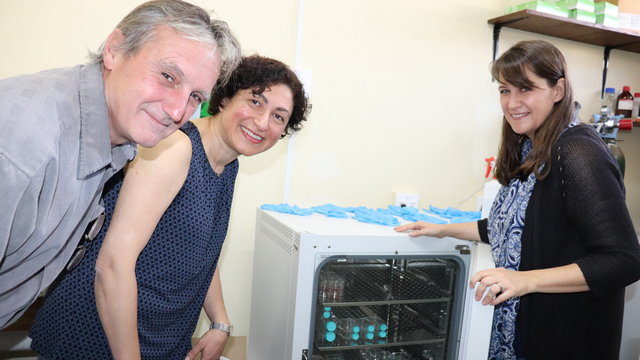
According to the World Health Organisation (WHO), Africa represents 17% of the world’s population but bears a disproportionate 25% of the global disease burden. Sub-Saharan Africa carries 90% of the global cases of malaria. In 2016, the WHO data revealed that the 2.5M who fell ill with TB in Africa represented a quarter of new TB cases in the world.
Rhodes University is set to become one of the hubs responsible for innovative research into drug discovery that will tackle the most prevalent diseases on the African continent. Three academics from the University are part of eight scientists who have each received $100 000 worth of funding each from Grand Challenges (GC) Africa. GC Africa, an initiative aimed at significantly reducing the health problems in Africa in collaboration with Medicines for Malaria Venture (MMV), Bill and Melinda Gates Foundation and University of Cape Town’s H3D.
The eight innovators were announced in Nairobi at the African Academy of Science last week. They are the inaugural awardees of the GC Africa drug discovery scheme and were selected from roughly 80 applicants from 13 African countries. The selected scientists are from South Africa, Cameroon, Ghana, Kenya, Mali, Nigeria and Zimbabwe. All the scientists from South Africa are Rhodes University academics, namely: Professor Adrienne Edkins, Associate Professor at the Biochemistry and Microbiology department; Professor Heinrich Hoppe, Associate Professor of Biochemistry and Professor ?zlem Tastan Bishop, Director of Research Unit in Bioinformatics (RUBi). Professor Edkins will collaborate with Dr Garth Abrahams, Senior Lecturer in Microbiology. The innovative research projects are aimed at advancing the discovery of new drugs to prevent, treat, and cure diseases endemic to Africa.
The innovators have each received $100 000 for a period of two years to expand their institutions' drug discovery research capacity.
Professor Edkins said this grant will increase opportunities for African scientists to get training and access to resources. “For Rhodes University, this is an opportunity to build on existing strength we have on research and drug discovery. We have an opportunity of making the University a real hub for drug discovery in terms of increasing the critical mass of people that are able to work in this kind of area. It allows us to be able to go and get additional funding so that we can grow and use that as a tool to recruit new students and address some of the diseases affecting the country,” she said.
Professor Hoppe said the idea has a lot of potential and expressed his gratitude to the organisations that have invested in their research. Professor Tastan Bishop said she was excited and flattered that out of so many applications they were chosen to represent South Africa. “Our work is, now, recognised by international funding bodies, and with this given opportunity we can achieve more and get the chance to put our names into the scientific community and hopefully this will lead us to find something useful for the community,” she said.
The selected cohort of scientists will present the progress on the work that they have done so far in Ethiopia next month. Should their preliminary research findings produce promising discovery and cure, there is potential for the funding to be increased.
Rhodes University Vice Chancellor, Dr Sizwe Mabizela said the institution was incredibly proud of the contribution and achievements of the three academics. “They are making a huge contribution to our country and to the whole world. As a University we are delighted to have academics of their calibre teaching our students, supervising our post graduate students and contributing to knowledge creating,” he said.

